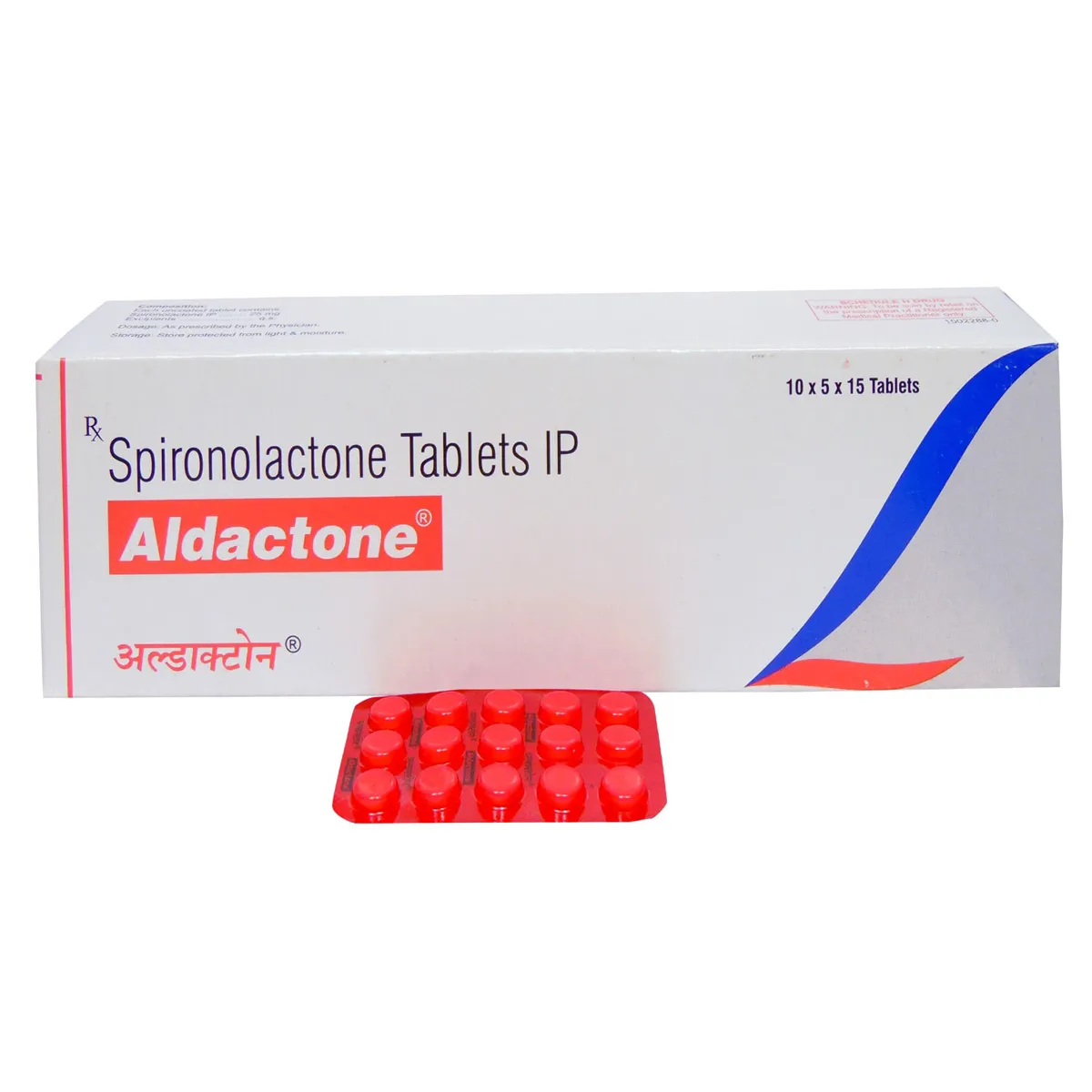Aldactone, also known by its generic name spironolactone, is a medication primarily prescribed for conditions such as high blood pressure, heart failure, and edema. However, its off-label use for acne treatment has gained attention in recent years. In this article, we'll delve into whether Aldactone 25 mg can be effectively used for acne treatment, its mechanism of action, potential benefits, and considerations for use.
Understanding Aldactone and Its Mechanism of Action
What is Aldactone?
Aldactone is a potassium-sparing diuretic and aldosterone antagonist. It works by blocking the effects of aldosterone, a hormone that regulates sodium and potassium balance in the body. By blocking aldosterone, Aldactone increases the excretion of sodium and water while retaining potassium, thereby reducing fluid retention and lowering blood pressure.
Off-Label Use for Acne
While Aldactone is primarily used to manage cardiovascular conditions, it has been found to have anti-androgenic properties, making it effective in treating hormonal acne, particularly in women. Androgens, such as testosterone, play a role in stimulating oil production in the skin, leading to acne formation. By blocking the effects of androgens, Aldactone can help reduce oil production and prevent acne breakouts.
Can Aldactone 25 mg be Used for Acne Treatment?
Considerations for Acne Treatment
Aldactone is often prescribed for acne treatment, especially in cases where other conventional treatments such as topical creams, antibiotics, or oral contraceptives have not been effective or tolerated well. Aldactone is typically used for the treatment of moderate to severe acne in adult women.
Mechanism of Action in Acne
Aldactone works by blocking the androgen receptors in the body, thereby reducing the effects of androgens on the sebaceous glands in the skin. By decreasing sebum production, Aldactone helps prevent clogged pores and reduces the occurrence of acne lesions such as blackheads, whiteheads, and inflammatory papules.
Efficacy of Aldactone 25 mg for Acne
Several studies have demonstrated the efficacy of Aldactone in treating acne, particularly in women with hormonal acne. While higher doses of Aldactone may be more effective in severe cases of acne, lower doses, such as Aldactone 25 mg, can also be beneficial, especially when used as part of a comprehensive acne treatment regimen.
Potential Benefits of Aldactone 25 mg for Acne
1. Reduction in Sebum Production
One of the primary benefits of Aldactone for acne treatment is its ability to reduce sebum production. By blocking androgen receptors, Aldactone helps regulate oil production in the skin, leading to fewer clogged pores and breakouts.
2. Improvement in Acne Severity
Aldactone has been shown to improve the severity of acne lesions, including inflammatory papules, comedones, and cysts. Many individuals experience a reduction in the number and severity of acne breakouts with continued use of Aldactone.
3. Hormonal Regulation
Aldactone helps regulate hormonal imbalances that contribute to acne development, particularly in women with conditions such as polycystic ovary syndrome (PCOS). By targeting the underlying hormonal factors contributing to acne, Aldactone can provide long-term relief from acne symptoms.
Considerations for Using Aldactone 25 mg for Acne
Consultation with a Healthcare Provider
Before using Aldactone for acne treatment, it's essential to consult with a healthcare provider, preferably a dermatologist, who can evaluate your skin condition, medical history, and hormonal profile. Aldactone may not be suitable for everyone, and a thorough assessment is necessary to determine the most appropriate treatment approach.
Monitoring and Side Effects
While Aldactone is generally well-tolerated for acne treatment, it may cause side effects such as dizziness, fatigue, menstrual irregularities, and potassium imbalances. Regular monitoring of blood pressure, potassium levels, and hormonal status may be necessary during Aldactone treatment.
Patience and Persistence
Results from Aldactone treatment for acne may not be immediate and may take several weeks to months to become noticeable. It's essential to be patient and consistent with treatment while closely monitoring your skin's response. In some cases, a combination of Aldactone with other acne treatments may be recommended for optimal results.
Conclusion
In conclusion, Aldactone 25 mg can be effectively used for acne treatment, particularly in women with hormonal acne. By blocking androgen receptors and reducing sebum production, Aldactone helps improve the severity of acne lesions and prevents future breakouts. However, it's essential to consult with a healthcare provider before using Aldactone for acne treatment and to closely monitor for any potential side effects.





Comments